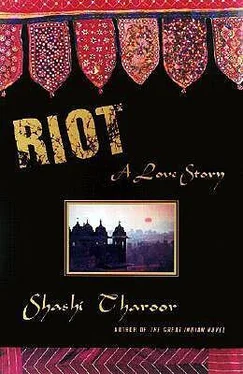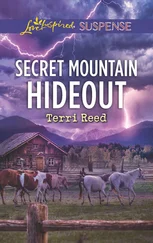The mob pounded on the door, the roof, the thick glass panes, with their accursed fists.
Then someone brought a can of petrol. Or two. I wasn’t there, but I have relived that horrible scene a thousand times, so that it is more vivid in my imagination than most things I have actually seen. I can imagine the faceless bastard, his features twisted in hatred and excitement, eyes bloodshot, swinging the can, the colorless liquid pouring out from it, splashing the metal, the glass, the windshield wipers, the rubber of the tires, the fucking petrol flowing in a graceful arc until the car was thoroughly doused with it. And then someone screaming for a match, a match, a motherloving match, and setting the car alight.
The flames must have soared instantly, and these unspeakable motherfuckers watched, cheering, as a decent man and his little boy were roasted alive in their seats. They must have tried to escape, my brother-in-law would have preferred to face the mob than to burn to death, but the locks on the doors must have fused together with the heat of the blaze, and they remained trapped inside, asphyxiating, burning, choking to death.
Ever since that day I have been haunted by the thought of little Navjyot, his hair tied on the top of his head under a navy blue kerchief, a bright little boy whose greatest ambition was to open the batting for India one day like his hero Gavaskar. I was not there, Randy, I was not there, but I imagine his round eyes widening in horror and bewilderment as the mob surrounded his car, I imagine his father trying to reassure him, calmly locking the damned doors, and I imagine his little face pressed to the window, staring in disbelief as the flames consumed him.
When his mother, my sister, heard the news, she quite literally lost her mind.
When I found out what had happened, I was beside myself with grief and rage. That was when I wanted to resign: I could not bear to serve a system that had allowed this to happen. The Delhi police had claimed they were overwhelmed. It took the bloody government three days to bring out the army and suppress the riots; in the meantime hundreds of Sikhs had lost their lives, thousands had lost everything they possessed. Rajiv Gandhi, the new prime minister, even condoned the violence by declaring that “when a mighty tree falls, the earth shakes.” The earth of Delhi was soaked in Sikh blood, and it was the bosoms of the Sikh widows that were shaking in grief and despair. I felt that all my training, all my faith in the country and its bloody institutions, had been futile.
But no, I didn’t resign. My father, Navjyot’s grieving grandfather, the man who was proudest to see me a cop, stopped me.
“Don’t be a fool, Gurinder,” he said to me, holding me by the shoulders as if he wanted to shake some sense into me. “Sikhs have lost so much already this year; let us not lose more. Your staying on will help prevent such tragedies in the future. What is the point of throwing away your ability to pursue the criminals, to uphold the law, to ensure that some other mob doesn’t murder someone else’s favorite nephew?”
I wept, I raged, I argued with him, I spoke of the Sikh soldiers who’d mutinied, I told him about a brilliant senior cop, Simranjit Singh Mann, who had quit the fucking police and joined the Khalistanis, and how I wanted to do the same thing. But he kept holding me, his sad brown eyes looking into the depths of my despair, and he shook his head. “Where do you think this will lead them?” he asked. “Will they achieve anything for their community, or for their country, except to cause more destruction and more unnecessary suffering? Do you want to throw away your future? Do you want to throw away India’s future?”
I don’t care, I said, and he looked at me as if he’d been shot. But you’ve got to care, he said. You’ve got to care about this country the way you care about your mother or me.
I don’t know, I replied, I don’t know if I can think of this country as mine anymore, after what has happened. I told him of overhearing a Hindu officer saying, “Damned good thing, it’s time we taught those Sikhs a lesson.”
He didn’t flinch, my old man. “There will always be people like that,” he said, and for the first time I felt the difference in our ages, in what we had lived through, what we had learned. “If I brought you up to believe everything would be easy, that the whole world would act with integrity and honesty and decency and fairness, then I have failed you,” he said. “You can only be true to yourself, and to the soil from which you have sprung, and to the oath you have taken.” He looked at me then, looked into me. Thirty-seven years earlier he had lost everything in the massacres of Partition: his home, his ancestral lands in what had become, by the scratching of a careless British pen, the foreign country of Pakistan. He had worked hard to rebuild, to build himself the life he now led: the car, the servants, the club, the son in the Indian Police Service. He had sweated to build his share of India; he was not going to let me throw it away for bugger-all. “You say you do not know if this country is yours anymore? Don’t be a fool, Gurinder. Whose country is this if not yours? Since the days of Gandhi, we have tried to build a country that is everyone’s and no one’s, a country that excludes nobody, a country that no one group can claim is exclusively theirs. When Jinnah and the Muslim League wanted to create a country for Muslims, their Pakistan, did the Congress leaders say fine, we will create a country for Hindus? The whole point about India is that this is a country for everybody, and everybody has the duty, the obligation, to work to keep it that way. To fight to keep it that way. I did not bring you up to give up so easily, Gurinder. You have a job to do. You have sworn an oath of office to do it. A Sikh’s oath is his sacred duty, Gurinder. You don’t have the right to give up on your country.”
And Navjyot, I asked, but feebly, because he had won me already. And because I realized I had wanted him to.
Because of Navjyot, he replied without hesitation. Because that should never have happened, and because you have a share of the responsibility to ensure that it never happens again.
He turned me to the photograph of Navjyot that stood on the dresser, a picture of an innocent little face, tender parted lips, shining eyes that had not yet seen the horror that would shut them forever. “That boy will always live in my heart,” he said softly. “But somewhere in India there is another grandfather like me whose only hope for the safety of his grandson lies in the trust that he places in you and the policemen under your command. Do not, Gurinder, do not ever betray that trust.”
And so I stayed. And that’s why I’m still a cop: because a sad, quiet, neatly dressed man in a white beard, my blessed father, had more fucking faith in me than I had in myself. And because, for all the corruption and venality and inefficiency that assails this bloody profession, it is still the last bastion of civility and order in our racked and torn society. And because I want to ensure that, as far as I can help it, no other family has to endure what my sister had to.
And because I am haunted by the face of a little ten-year-old boy enveloped in flames, a boy who loved cricket and called me Uncle.
I want to save that boy. I want to save other children like him. I want to put out the fires.
letter from Priscilla Hart to Cindy Valeriani
August 15, 1989
Cindy dear, it’s Independence Day today. India’s. I’m sitting at my desk in my loosest cotton shift as my rickety fan totters on its pedestal and blows hot air into my face. August is murderous in Zalilgarh, but it’s not as bad as May or June, before the monsoon, when you step into the street and think you’ve walked into an oven. It’ll start cooling down in October, but as it gets colder you’ll have the pollution to cope with — the smoke from hundreds of charcoal braziers on the sidewalks, thousands of buses and cars and autorickshaws, and God knows how many factories, all rising to be trapped under the winter mist rising from the river. Gurinder said the other day that just breathing Zalilgarh’s air is the equivalent of smoking a pack of Charminars a day. And he picked an unfiltered brand to make his point!
Читать дальше












